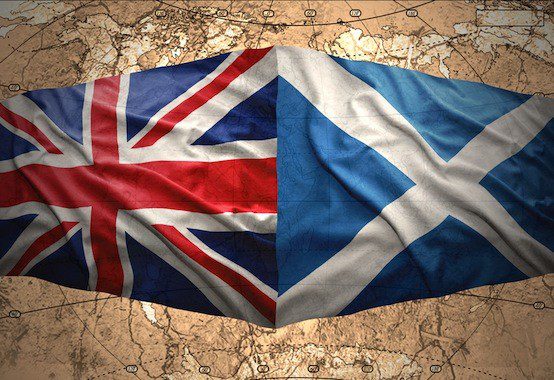Is the Idea of Scottish Independence Baffling?

Niall Ferguson is predictably against Scottish independence, which isn’t particularly interesting. However, there was something he said about American views of the referendum that deserved a short comment:
Even to the millions of Americans whose surnames testify to their Scottish or Scotch-Irish ancestry, the idea that Scotland might be about to become an independent country is baffling [bold mine-DL].
I am part Scots-Irish on my mother’s side, and I don’t find it the least bit baffling. It isn’t up to me or any other Americans what happens later this week, but it would be extremely easy for me to understand if a majority voted for independence on Thursday. Nothing could be easier to understand than the desire of a people to try to get more control over how (and by whom) they are governed. This impulse never seems to baffle anyone when we see it in other parts of the world.
Western policymakers and pundits are normally too enamored of the benefits of partition, secession, and the creation of new states when it applies to states that they don’t like or that they view as intractable problems. Iraq isn’t stable? Maybe we should split it up into sectarian and ethnic enclaves, regardless of what the people living there might want. Sudan suffers from a protracted civil war? Let’s create a new, automatically failed state as part of the “solution.” Ukraine is politically divided and dysfunctional? Maybe we should cut it in half! Over the last few months, advocating for an independent Kurdistan has suddenly become popular again, as if that weren’t potentially very dangerous and explosive for the entire region. But when there is a popular movement to establish a new state peacefully and it affects a Western country that they know well, it suddenly seems mystifying and bizarre. “Why would anyone want to do that?” they ask. Self-determination and national independence are supposed to be what nations somewhere else want. People living in modern Western democracies are supposed to have outgrown that sort of thing.
If anything, I would think that Americans would generally have a better appreciation than most for why people would want to establish an independent state in spite of the very real costs and economic disruptions that could come with it. After all, the promise of independence for Scotland isn’t that the country will definitely be more prosperous or successful (it may not be), but that the people living there will be able to govern it in a way much closer to their preferences than they can now. That can be worth a lot more to people than sticking with a status quo that may be easier and safer in the short term.
Comments